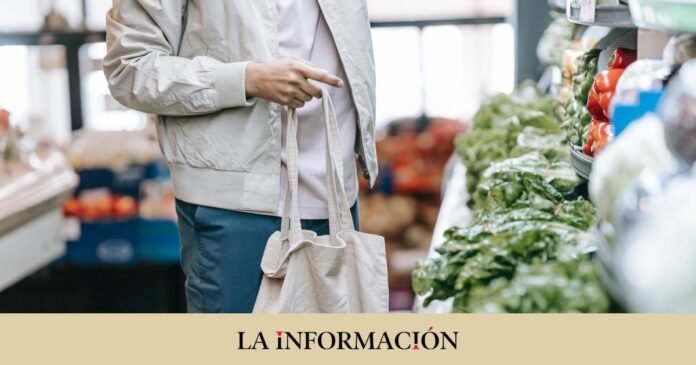The increase in prices for organic products in recent months is hindering the growth in consumption of this type of food. The high inflation of food has been added to the crisis that Spain is going through due to the scarcity of water. This increase in prices has led a growing number of citizens to abandon organic food in favor of cheaper alternatives.
Coupled with these two factors, there are other issues that are causing a lack of interest in the products on the part of consumers. Among them, “the lack of promotional support from the State in the media,” says Susana Andrés, promoter of successful ecological projects. Four years ago, before the coronavirus pandemic, “the consumption of organic products increased considerably, specifically 35%,” says the expert. However, today this percentage “decreases in worrying numbers for the sector,” says Andrés, which could lead to negative consequences for the health of the consumer.
In a scenario in which it seemed that the consumption of organic products was taking “small but firm steps”, world consumption of this type of product increased by just 3.5%, a percentage lower than the figures previously recorded, according to the data provided . the general secretary of Ecovalia, Diego Granado, to La Información. This change in trend has been observed not only by the Associations of Organic Products but also by the organizations of farmers and ranchers, who experience the evolution of organic production from the first plane and point to a recession in the consumption of these. products: “The segment of fresh organic products is falling”, asserts Andrés Góngora, member of the Executive Commission of the Coordinator of Organizations of Farmers and Ranchers (COAG). The cause, a historical inflation in the price of food.
Consumers prioritize their spending in the shopping cart
The Consumer Price Index (CPI) confirmed for the month of July amounted to 2.3%, which represents an increase of four tenths compared to the global 1.9% registered in July. But the rise in food prices stood at 10.8%, a situation that has led many citizens to prioritize savings over sustainability, and consequently, say goodbye to organic food for the moment and give priority to other types of expenses.
As awareness of a healthy lifestyle expands, so does the price of healthy food. Susana Andrés highlights how today’s society is becoming aware that factors such as pollution, processed foods or pesticides can affect health. However, “price currently conditions purchase decisions and consumers respond to products and services positioned in savings,” she says.
Fruit accounted for 14% of sales and vegetables for 10%.
When shopping, organic food consumers mainly look for fresh products, according to the Spanish professional association of organic production, Ecovalia, which analyzes that fruit accounted for 14% and vegetables for 10% of total food. . organic products consumed, a line in which, for the moment, “there have been no slowdowns in consumption of some foods compared to others”. However, we will have to wait to know the data reported at the end of the year, remember from the association.
Greater promotion and diffusion of the organic product.
The organic production sector works to improve awareness of organic products and therefore boost their consumption. To this end, both Ecovalia itself and the experts from the ecological projects, -among them Susana Andrés-, assure that “promotion is essential in this tide of sustainability, seals and certifications”.
Despite the fact that the part of organic food is “very relegated today”, according to Andrés, to increase sales “it is necessary to make society aware of sustainable consumption and that they know the health benefits that organic products bring “. In addition, “consumers know that organic food is identified with a single seal for the entire European Union, and that these foods represent the true concept of sustainability”, emphasizes the general secretary of Ecovalia, Diego Granado.
42% of the population does not know the ecological seal.
The sector needs to have the support of public policies for organic production and the European Commission has gone a step further after establishing a comprehensive ecological action plan, within the framework of the ‘From farm to fork’ strategy of the Green Pact . Thus, the objective has been set that “at least 25% of agricultural land in the EU is dedicated to organic farming and a significant increase in organic aquaculture by 2030”. Although it IS Necessary For Spain To Raise The Degree Of Awarenessciaciaciaciaciaciaciace, Today, “58% Of Consumers Know About The Green Leaf, The Euro Seal Of Organic Production, But There Are Still 42% Of The Population With The that you have to work”, points out the general secretary of Ecovalia.
In short, the scenario of inflationary crisis and the drought that Spain is going through together with the risks of ‘greenwashing’ are challenges that the sector has to face, conclude the experts. Within this framework, in the short term, “we estimate that growth will continue, although for a while it will do so at a slower rate than it was a couple of years ago, but we understand that we are facing temporary and non-structural circumstances,” concludes Diego. Pomegranate.

